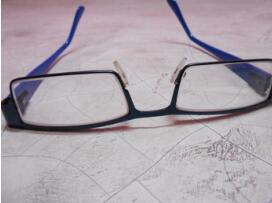
More and more children in the class were wearing glasses. It was a bad trend.
Mackle, a boy with good eyesight, decided to do something. But what could he do? He couldn't invent any magic potion and restore their eyesight with just one drop. This was indeed whimsical.
But at the very least, he could help children who were not nearsighted keep away from 'nearsightedness'. What could he do to help them? This may be the responsibility of being the 'encyclopedia'. As the science teacher's assistant in the class, Mackle decided to organize a small lecture to explain the cause of nearsightedness and share some prevention methods.
He did a lot of work in preparing for the lecture, and also boned up on the following knowledge of physics. Let's have a look at the lecture.
"To understand why we become nearsighted, we need first to understand why our eyes can see things." It's getting off the topic too much, but let's see what he was going to say.
"When we look at an object, the object firstly reflects the light on it into our eyes. In the process, the light passes through the crystalline lens, an important part of our eyes. What is a crystalline lens? We can imagine it as a convex lens. Light rays diverge before they enter our eyes, and converge after they pass through this 'convex lens'. If these light rays converge right on our retina, we can see the object clearly. That is, the lens helps us adjust where the light rays converge. It gets thinner when we look at things far away, and gets thicker when we look at things nearby. We can say the lens changes its thickness so that the light rays converge right on our retina. This is why we can see clearly."
Mackle made it very clear. Our eyes are like a precise instrument. Its complex internal structure enables us to see the world. But why can't we see clearly, or why do we have nearsightedness? Let's move on together with Mackle.
"Then you may have guessed the cause of nearsightedness: when we look at something far away, the light rays can't converge right on, but in front of our retina. Why is this happening? Because there is also a part called 'ciliary muscle' in our eyes. It regulates the thickness of the lens by contracting or relaxing itself. When the ciliary muscle is contracted for a long time, it may get weak and fail to regulate the lens. Then we are easy to become nearsighted. This is mostly due to our bad eye habits, such as using eyes for a long time without a rest, reading in dim light, and looking at electronic screens for a long time. If you are nearsighted, you need to wear glasses. To put it simply, the eyeglass acts as a concave lens. It allows the light rays to diverge before entering our eyes, so the rays can converge right on our retina and we can see clearly."
Both the cause of nearsightedness and the principle of glasses are explained. What a clever chap! But he had not mentioned much about how to protect our eyes yet.
"Protect our eyes? Of course! The eyes are the windows of the heart and important organs for us to see the world. We have to protect our eyes in daily life. We need to develop good eye habits, rest our eyes regularly, avoid looking at electronic screens or books for a long time, and do more outdoor activities. Or you will be regret when you are nearsighted," Mackle concluded.
Look, Mackle was really like a teacher.
Author: Zhu Yawen

















 京公网安备11010502039775号
京公网安备11010502039775号





